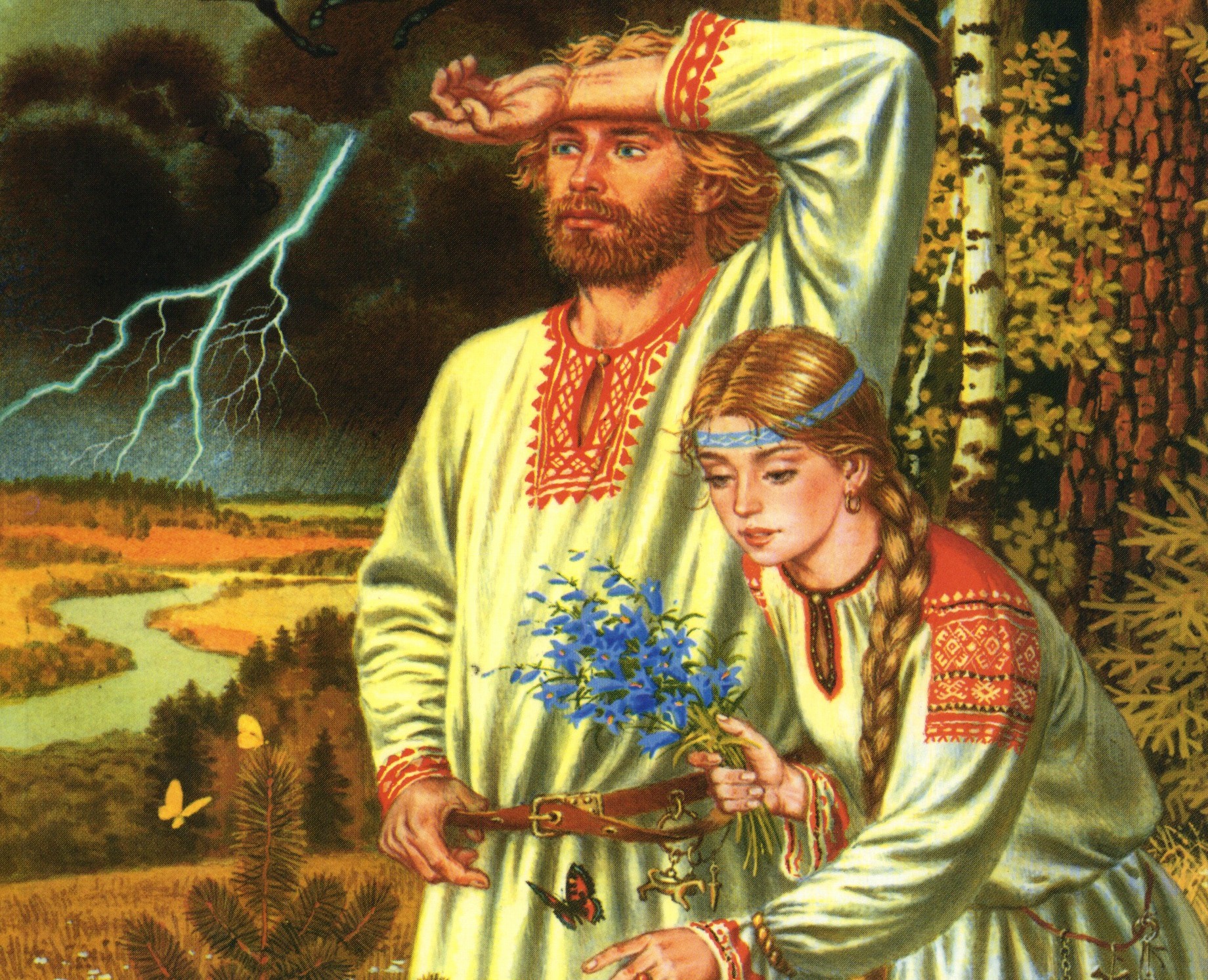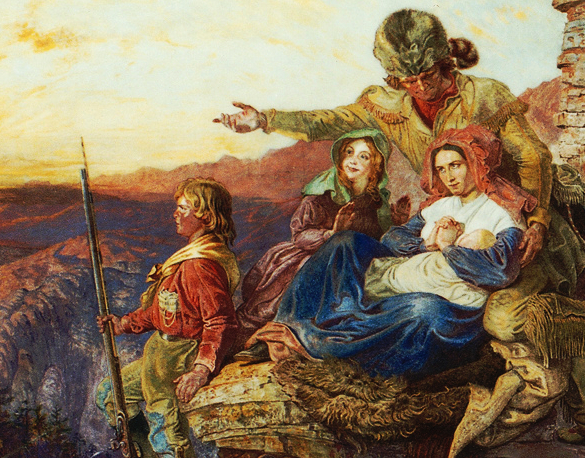Clement Pulaski
Daily Stormer
July 10, 2013


A standard view of early America is that it represented an extension of English civilization on the new continent—the English language, customs, and laws shaped many aspects of the young republic. And while this is undoubtedly true, many early Americans thought of their nation as the latest stage of a racial and cultural movement that began long before the emergence of the English people. They were aware that their expansion into the savage wilderness of the West was part of a journey that had begun millennia ago when the original Aryans left their homeland. In his 1981 book Race and Manifest Destiny, Reginald Horsman notes the prominent 19th century belief that civilization and the Aryan race travel westward, following the sun:
the Americans were inspired to link their Anglo-Saxon past to its more distant Teutonic or Aryan roots. Even in colonial America the ancient idea of the westward movement of civilization had brought dreams of a great new empire on the North American continent, but as German philologists…wrote of tribes spreading westward from central Asia following the path of the sun, the Americans were able to see new meaning in their drive to the Pacific and Asia. They could and did conceive themselves as the most vital and energetic of those Aryan peoples who had spilled westward, “revitalized” the Roman Empire, spread throughout Europe to England, and crossed the Atlantic in their relentless westward drive.
Although this Aryan ideology did develop more fully in the United States during the 19th century, in the late 18th century Americans had already linked their Anglo-Saxon past to the ancient Germans of two-thousand years ago. The Founding Fathers viewed their political program largely as an attempt to return to the form of government practiced by their Anglo-Saxon and German ancestors, and they used the institutions of the German tribes described by the Roman historian Tacitus (56-117 AD) as one of their principle sources of inspiration. Describing the ancient Germans, Tacitus says:
They choose their kings by birth, their generals for merit. These kings have not unlimited or arbitrary power, and the generals do more by example than by authority. If they are energetic, if they are conspicuous, if they fight in the front, they lead because they are admired.
About minor matters the chiefs deliberate, about the more important the whole tribe. Yet even when the final decision rests with the people, the affair is always thoroughly discussed by the chiefs. They assemble, except in the case of a sudden emergency, on certain fixed days, either at new or at full moon…When the multitude think proper, they sit down armed. Silence is proclaimed by the priests, who have on these occasions the right of keeping order. Then the king or the chief, according to age, birth, distinction in war, or eloquence, is heard, more because he has influence to persuade than because he has power to command. If his sentiments displease them, they reject them with murmurs; if they are satisfied, they brandish their spears. The most complimentary form of assent is to express approbation with their spears.
Viewing the tyrannical institutions of feudalism as foreign to the native political forms of their race, the early Americans celebrated the return of their ancient liberties:
Has not every restitution of the ancient Saxon laws had happy effects? Is it not better now that we return at once into that happy system of our ancestors, the wisest and most perfect ever yet devised by the wit of man, as it stood before the 8th century?
-Thomas Jefferson
Thus the American pioneers who expanded Westward were not just a “vital and energetic” branch of the Aryan family, but were the only branch that had explicitly attempted a return to the political institutions of the ancient Aryan tribes. Following this political renewal came a furious conquest and expansion of Aryan civilization, and within a few short years the United States stretched to the Pacific coast, the very edge of the West.
